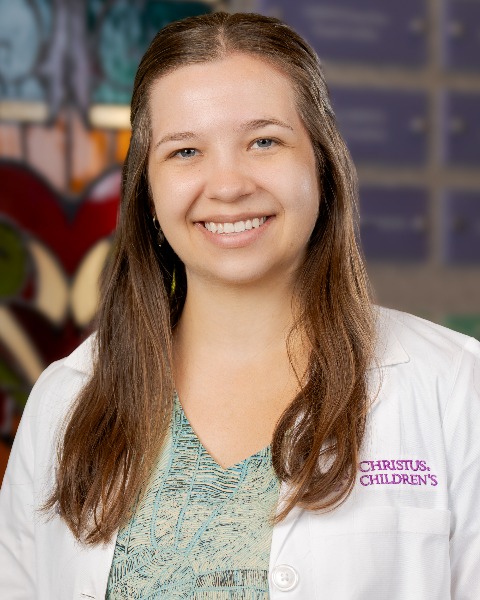Medical Education Works in Progress
Session: Medical Education Works in Progress
WIP 31 - Cultivating Competency in Consult Communication: Increasing Resident Feedback to Advance Milestones and Entrustability
Saturday, April 26, 2025
2:30pm - 4:45pm HST
Publication Number: WIP 31.7442
Victoria a. Krieg, Baylor College of Medicine, San Antonio, TX, United States; Sarah F. Denniston, Tufts Childrens Hospital, Boston, MA, United States; Adam Wolfe, Baylor College of Medicine, San Antonio, TX, United States; Sasha T. Wee, Children's Hospital of San Antonio, San Antonio, TX, United States; Summer Donovan, Baylor College of Medicine, San Antonio, TX, United States; Duc T. Nguyen, Baylor College of Medicine, Houston, TX, United States; Ankona Banerjee, Baylor College of Medicine, Houston, TX, United States; Cory Henson, Baylor College of Medicine, San Antonio, TX, United States

Victoria a. Krieg, DO (she/her/hers)
Fellow
Baylor College of Medicine
San Antonio, Texas, United States
WIP Poster Presenter(s)
Background: Medical education has evolved over the past 25 years with development and implementation of competency-based education utilizing Milestones, and more recently, Entrustable Professional Activities (EPAs). Since its advent, residency programs have faced increased demands to provide objective assessment and meaningful feedback to residents on their interpersonal and communication skills (ICS). In a busy clinical setting, observing these skills can be challenging but is vital to measuring resident competency in ICS. In medical education, a skill commonly lacking formal feedback is competency in requesting and communicating a consult (ICS-2 and EPA-12).
Objective: We created a novel tool to provide pediatric residents with formal feedback on the content and quality of communication during consultation requests. Consultants and faculty observers assessed resident competency (ICS-2) and entrustability (EPA-12) using the tool. By increasing the frequency of feedback for residents engaged in consultation, we hypothesize that a resident will advance more quickly in competence and entrustability over time compared to a control group of peers.
Design/Methods: This IRB approved study is being conducted at a single academic institution from March 2024 to January 2025. The novel tool was developed utilizing survey design tools, existing literature on quality consult communication, and expertise from subspecialists. The intervention group is made up of 32 of the 36 current pediatric residents. The control group consists of the graduated pediatric residents of the 2024 class. Both groups provided informed consent. Non-pediatric residents are excluded from the study. Following a consultation call, observers use the tool to provide feedback on an individual resident’s performance during the call. Participating residents receive summarized written feedback every two months. Mixed effect models will be conducted comparing ICS-2 and EPA-12 scores over time for the intervention and control groups via their semi-annual evaluation by the Clinical Competency Committee (CCC).

